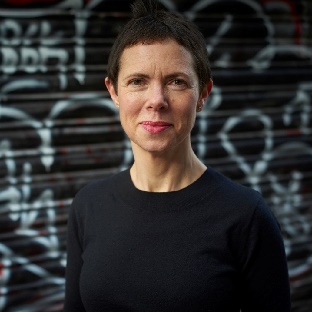Negotiating the pathway from rhetoric to reality in community-centred work is still the major challenge of our times.
This article first appeared in Issue 4 2015 of the RSA Journal.
Before Beveridge and the postwar welfare state, the solution to finding work was rooted in community. There was a local and close-knit form of support for those who lost their jobs: the local pub. In many communities across Britain, working people saved small sums with their local publican on a weekly basis. For the worker who lost their job there was a small sum of cash and also, critically, a network of relationships: friends who could give you some moral support, introduce you to someone who might have work and give you a bit of a push if you seemed to have lost the motivation to get out there and look.
These informal, community-based systems were swept away in the 1950s. New unemployment services such as the job centre and benefits were a pillar of the postwar welfare state. These services, like all other areas of the welfare state, have been subject to waves of reform in the intervening decades, but scratch beneath the surface, the logos, the talk of ‘best practice’ and ‘personalisation’ and you will find little has really changed. The essential mechanics of the job centre and welfare to work are still those of the 1950s. A time traveller from that era might remark on the new colours of the sofas but they would discover a queue and a service that they would recognise.
Beyond the doors of the job centre, however, the world of work has radically transformed. The industrial model of a job for life has been replaced by a flexible labour market in which most of us can expect to change jobs at least eight times over the course of our working life. There are the challenges of structural unemployment – places where good work has disappeared – and the increasing difficulty of progressing between a junior and more senior job in what labour market specialists refer to as ‘the hour-glass economy’.
Few deny that the current system is broken. Young people starting out, older people whose skills are out of kilter and the many who are simply looking to get on and progress are poorly served. Less remarked upon is the critical fact that most new jobs are not advertised. Data from sources as diverse as LinkedIn, the Federation of Small Businesses and surveys for the Wall Street Journal suggest that as many as eight out of 10 new jobs are not formally advertised.
It turns out that in the modern labour market, the best way to find work is to have a diverse social network – in other words a broad and connected community – and to know how to use it. Standing in a queue with others also locked out of work, filling out your CV and applying for the same small pool of jobs is unlikely to work very well.
For the past 10 years I have led Participle, a social enterprise and an experiment. We have been designing working exemplars of a future welfare state that start with people, their communities and relationships, building on, enhancing and measuring capabilities.
“Get me out of here” read the message emblazoned across a false door we had hastily erected in the job centre. Anyone who offered us £5 could come through the door and work with us. First up was Leroy: “It’s been hard signing on every week, being treated like I am not worth anything,” said Leroy. “I am not a lazy person.” Next came an exasperated Jack: “They just don’t get you... they keep telling me to wear a tie at interviews.” And so it continued. We raised the price, to no avail: it felt like everyone wanted to come through our door.
We started to work together to design a different approach to unemployment. With an eclectic group of people in work, out of work and somewhere in between, we started to organise meet-ups in cinemas, cafes and pubs. We worked to tell different stories about ourselves, to think laterally about skills and how to get started, sharing every idea and opportunity that we came across. We learnt rapidly what worked and what was challenging and we iterated our ideas. A new approach with supporting tools was developed: the foundation of the service that became Backr (a community that backs you to succeed). We developed technology to enable a small team to work with a much greater number of people, bringing new members face-to-face, engaging in structured exercises and drawing on community support.
By 2015 we had worked with over 1,000 people. An independent evaluation of Backr by the auditors PwC showed strong evidence both of hard outcomes (people into work) and of the causal link between an approach rooted in relationships and employment outcomes. The evaluation concluded that Backr delivered a consistently positive impact. An approach rooted in community cost significantly less and Backr also gave people a sense of resilience and self-belief, which we can assume will help them to continue to progress and ride the next downturn.
If unemployment services are a worn out pillar of the postwar welfare state, the challenges of ageing are of a different order. Today in Britain there are more pensioners than young people under the age of 16. One in five of us will live to see our 100th birthday. This wonderful longevity is, in part, due to the success of the 1950s welfare state and the introduction of a national health service. However, these demographic shifts were not foreseen and were not planned for. Services are stretched, care is poor, if not absent altogether, and our ageing society has become a source of panic rather than celebration.
From the perspective of our services and welfare institutions there is just not enough to go around. Starting in people’s lives, however, the picture looks rather different: we see the abundance of time, talent and potential. Around 80% of Britain’s wealth is in the hands of older people and many of them are inventing new ways to live and age. Others and their families are suffering, without resource and with challenges that seem insurmountable. The picture, in other words, is mixed but what is immediately clear is that resource lies with older people themselves, even if the resource is poorly distributed.
At Participle, we asked how we could support every older person to flourish. Working initially with just 100 older people, along with their friends, family and neighbours, we asked what was needed. At first people told us how to improve the current offer. It takes time to get beneath the surface, to the emotional level, to people’s dreams and aspirations. New solutions come from very different ways of working. We continued to listen and be present without an agenda, and we heard people say they wanted two things. First, a rich social life: not to be befriended but to meet with the like-minded, make new friends and do interesting things. Second, people want on-demand practical support: someone to go up the ladder and change a light bulb.
We hired a couple of handy people, rented a phone line and started a membership service called Circle. In London there was an attempt to grow Circles at speed, which was unsuccessful. In other places such as Rochdale and Nottingham, Circles became rooted in their local communities and the wider service ecosystem, transforming the lives of their members. As the relationships between members grew and deepened (something we measured) other impacts started to show: a significant decline in the numbers making unnecessary visits to their GP, for example. Over the years, thousands of people have become members.
Growing a diverse community that includes the young, the old, the active and those who need more support is intensive: it takes time and skill to encourage those who have lost their confidence or mobility to take part. Each Circle is run by a small team of staff and volunteers. Technology enables this small team to respond on demand, support a diverse social programme and keep track of who needs help, all at relatively low cost.
Members call Circle when their pets are unwell, or they simply need someone to chat to but also when they urgently need help, perhaps after an operation. A rich and varied social calendar involving art tours, darts, knitting circles or hot air ballooning offers something for everyone. And over time, we have seen something very interesting develop: the community friendships that form take over from the practical offer.
The story of Belinda who joined her Circle at a time when she felt lonely, stuck and rather down is typical. She let her local Circle know she was going into hospital for a knee operation. Damien, who ran her local Circle, knew she would be out of action for a while so called her to find out what support she would need. “Oh no,” Belinda responded, “Florence is doing the shopping, Tony is doing the garden and Melissa and Jo are popping in to cook and chat.” In total, five other Circle members had organised everything she needed. Inviting Belinda to a Circle event was the start of a process that allowed natural friendships to form, relationships that are now making the difference and enabling Belinda, who is in her eighties, to flourish.
Backr and Circle offer just two examples of how we can build new services and approaches with people, in ways that cost less and work better. Backr is closer to a traditional service model, where individuals sign up and receive structured support, albeit of a different nature rooted in the development of a person’s broader capabilities and drawing on the support of a wider network. Circle is not a service in a traditional sense; it is a curated community whose membership provides on-demand practical and social support to others.
These services work, in large part because there is coherence between what they offer externally and their internal culture and ways of working; closing this gap is central to their success. At Participle, we developed the concept of the ‘relational worker’. Through delivering services to thousands of people across Britain we learnt about the practices, cultures and ways of working that could support a housebound elderly person to flourish once again or a long-term unemployed person to take control of their own journey back to work. But we also learnt about the systems, cultures and practices that enable those at the front line to work in this way, in challenging, often high-stress jobs. It is a model in which you are encouraged to bring your whole self to work.
Participle’s models are innovative in the UK context precisely because ideas of community and humanity have not been grafted on to services that were never designed to operate in these ways. In his pioneering book, Reinventing Organizations, Frederic Laloux has shown how a number of extraordinary organisations (from manufacturing to hydraulic engineering) have reinvented their management practices, by taking a different perspective on how we can relate to one another. One example is Buurtzorg, a Dutch homecare service that put relationships back at the heart of an organisation that had become increasingly target driven, with a corresponding decrease in care standards and staff morale. Enabling nurses to work in self-managed teams and spend time nurturing those they visit has not only improved care, it has also dramatically reduced the service’s cost base. The critical part of the story is this: the Buurtzorg model grew through an understanding that community and relationships were needed at work if the effects were to be felt by those receiving care.
Most of what has passed for reform of the welfare state in recent years has been the very opposite of this approach. The adoption of the principles and relationships of the commercial world such as the introduction of targets, regulatory agencies and the predominance of financial benchmarks, have split off organisations from the communities they are meant to serve. They have split off those who work within organisations from their own motivations and creative energy. The academic Theo Mars, who has worked on the history and politics of public administration, has described these changes as the restructuring of public action into programmes of “service delivery to citizens” and later to “consumers”, leading to a fundamental restructuring of the relationship within and between the public and public sector organisations.
In this context, the work of Participle and the findings of the RSA’s Connected Communities research can be seen as the recovery of something lost as much as it is the discovery of something new. As the market-based reforms of recent years have become increasingly contested and failed to achieve the hoped-for results, an interest in community has been reawakened.
At the same time, the concepts of delivery, users, consumption and commissioning have not only shaped past decades of policy and practice, they have shaped how we see the world, our language and approach. They have also rendered some things unsayable. Indeed, we have contorted ourselves to such an extent that, despite the recent interest in putting relationships at the heart of a future welfare state, some rather well known gurus in the area have been heard to ask how we can commission a relationship.
It is, of course, not possible to purchase a relationship. Nor is it possible to boil community practice down to the financial language of dividends and the traditional metrics of outcomes. Communities and relationships are based on respect, a balance of power, authentic reciprocity. And so there is a gap: policymakers and well-meaning commissioners know intuitively that new models that start with people and are rooted in community make sense and are the future, and yet they are unsure as to how to proceed.
Shifting from one model to another requires a different starting point and new questions. The relational work exemplified by Circle and Backr (and the RSA’s Connected Communities work) asks questions about the nature of the society we want to live in, how we think about ourselves and what we want to create together. Circle and Backr embody different values and beliefs about the purpose of the welfare state.
Asking and answering these questions requires brave leadership, some upfront investment (which is currently almost impossible to find) and a commitment to authenticity: to close the gap between the external and the internal. So today, we have a gap between intention and reality, between rhetoric and understanding but this need not be a source of discouragement. We are on the cusp of a revolution as bold as that of the original welfare state: just as during the ’50s, the models of today will be swept away. The important thing is to make sure that the new starts with people and their communities.
Hilary Cottam is a social entrepreneur. Follow her on Twitter @HilaryCottam
Watch Hilary’s TED Talk on social justice
Related articles
-
Will Covid-19 transform local public services?
Joan Munro
The way local public sector leaders pulled together has created an opportunity for transformational changes.
-
Why is foodbank use rising?
Ian Burbidge
A report by Human Rights Watch illustrates the impact of a system based on conditionality.
-
Our Common Ground
Sir Ian Cheshire
Our Common Ground, a new progress report from the RSA Food, Farming and Countryside Commission's emerging thinking as we reach the half way point of our inquiry




Join the discussion
Comments
Please login to post a comment or reply
Don't have an account? Click here to register.
This is a thought provoking and challenging article. A few years ago a group of local people established a 'community hub' in the same building that a Local Authority Children's Centre had been run from. There was much disappointment that the Children's Centre was closing etc. Yet, 2 years on, I continue to be intrigued to see what has been developed in it's place.
The Hub has grown and developed programmes and activities for local families and individuals of all ages. Primarily volunteer powered, it's messy, organic and very relational. Recently, 'Hubsters' decided that some of the activity that is volunteered powered and supporting others attending the Hub could become an enterprise eg soup making. It's a bit like an Apprentice episode at the moment, but it's interesting to see people recognise their skills are have value and are 'marketable'.
Relationship is key to empowering people, that's not news, but perhaps in a time of limited public spend - we are giving room to new expressions of community connection rather than service driven centres.
Keen to look in more detail about Hilary's work and learn from this and other examples as we, service providers, learn how to facilitate rather than deliver in our communities.